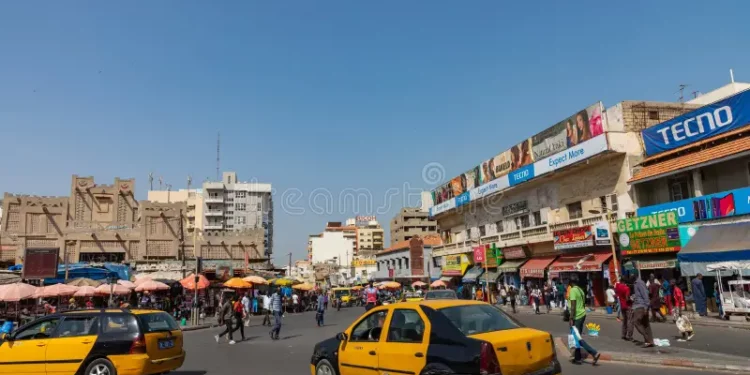Africa is being courted by China, Russia and the US – Why the continent shouldn’t pick sides
Some three decades since the end of the Cold War, the world order is undergoing a structural transformation. At the heart of it is the challenge posed to the hegemony of the US. This is primarily being led by Russia and China which are discontented with Washington’s excesses across the global stage. The most recent example of this rebellion was the Russian invasion of Ukraine in 2022. Fiona Hill, a British-American foreign affairs specialist, observed that the war was a “proxy for a rebellion by Russia and the ‘Rest’ against the United States”.
The African continent is an obvious contender for major power courting as this realignment takes place. This is for at least four reasons.
Firstly, it is the largest regional bloc in the United Nations, representing some 28% of all the votes in the General Assembly. Secondly, it possesses some crucial raw minerals that are found only in the continent. Thirdly, it possesses some important sea trade routes, particularly in east Africa. Finally, the continent is home to the fastest-growing youth demographic, and will account for about 42% of the world’s youth by 2030.
I am a scholar of geopolitics and have conducted research on the continent’s trade ties to the major powers. My findings have led me to the conclusion that Africa can gain more by being neutral than by picking sides.
The drivers
Africa’s size in the UN General Assembly can’t be overstated. The continent sometimes struggles to respond in a co-ordinated way. Nevertheless, it has, in the past, been able to vote in sync in a way that has proved influential. The most notable example of this was the 1971 vote for the resolution that brought mainland China into the UN and replaced Taiwan. In total, there were 76 votes in favour, of which 27 came from African member states.
In today’s UN, having this large grouping on one’s side helps countries the most when it comes to passing – or defeating – resolutions. With the UN Security Council in gridlock because the five permanent members (China, France, Russia, the UK and the US) have veto power, there has been a shift towards the UN General Assembly, which works on one-member-one-vote. General Assembly votes are mainly symbolic. But they are a useful indicator of where the international community stands, and are a powerful moral weapon for any major power.
Africa’s other major attraction is, of course, its resource wealth. This has become even more pronounced and taken on extraordinary importance in the push towards alternative sources of energy, both renewable and non-renewable. And in the production of products driven by the rise in technological innovation, such as the Democratic Republic of Congo’s cobalt, which is needed to make device screens among other things. The DRC is the world’s leading producer of this crucial mineral.
At the same time the oil reserves of Algeria, Angola and Nigeria will become increasingly important as countries look to diversify away from Russia for natural gas, and from fossil fuels more broadly.
Then there are the trade routes. The Red Sea route, which straddles northeast Africa and links it to the Indian Ocean, constitutes 10% of annual global trade .
The Red Sea route passes countries such as Eritrea and Somalia. Both have been actively courted by Russia.
For its part, China has earmarked the route through its Maritime Silk Road initiative. Its aim is to boost port infrastructure among countries with Indian Ocean coastlines.
Lastly, Africa is home to the fastest-growing youth population. This will be important in the search for future markets, particularly in sectors such as technology and education.
The US and Europe are also keen to tap this human capacity as their own populations age above the global average. Many are looking to Africa as a source of inward migratory flows.
Africa’s ties with the major powers
In 2022, the continent as a whole exported US$43.1 billion worth of goods to the US and imported goods worth US$30.6 billion.
By comparison, China exported US$164.1 billion to Africa and imported US$117.5 billion worth of African goods, in the same year. With African exports totalling US$661.4 billion, the US accounts for 6.5% and China 17.7%.
China, the notable growth story of the past half-century, has thus become the African continent’s single biggest trading partner, though the combined power of the European Union’s trading bloc of 27 countries still leads.
China’s ties with the continent are the result of decades of diplomatic and commercial efforts to woo the continent through the Forum on China–Africa Cooperation. Part of this has been driven by its desire to counter the US. The other driving force has been to sustain its economy, given Africa’s untapped potential.
Russia has pursued a different strategy. Given that its trade with the continent is at a minimum – exports and imports were around US$18 billion in 2021 – it has rather sought to become a security partner, drawing on sentimentalised Soviet history.
Washington’s principal instrument for growing trade, and encouraging good behaviour, in Africa is the African Growth and Opportunity Act, set to expire in 2025. The framework is a lever. But, as the data show, trade is in evident decline.
The general picture can obscure some nuances. Some African states are more deeply intertwined with the US than others. For example, Djibouti has an American military base (along with other states, though not Russia at this point). And Egypt, Nigeria and South Africa are also among the top recipients of US direct investment.
On the other hand, Eritrea, which was the only African state to brazenly vote against the UN General Assembly to condemn Russia’s invasion of Ukraine in 2022, seems to have no aspirations to be in America’s good graces. This notorious outlier aside, the world is deeply intertwined, with high interdependence even among the competing major powers.
The US and China, despite their trade war, have struggled to decouple from one another, with their bilateral trade reaching new heights as recently as last year.
In light of the comparatively diminished US-Africa trade, the US may be looking to make use of third parties. It could potentially influence the EU to influence Africa. The Huawei issue demonstrates this. The US has successfully pressured quite a few of its allies to halt doing business with the Chinese technology giant. According to Unctad data, France (US$60 billion) and the UK (US$65 billion) are the principal holders of African assets.
As these and other European states seek to “de-risk” from China, there may be third-party consequences for Africa. This might include undue pressure on the continent to behave in certain ways towards China and towards Russia.
Picking sides isn’t the best option
Recent research, including my own on US-China trade “competition” over Africa, shows that the prevailing notion that smaller countries need to “pick sides” in polarised global contexts is false. Africa is best served when it conducts trade with as many partners as possible.
Indeed, as shown, the major contenders are themselves conducting record-breaking trade with one another.
All the while, Europe continues to conduct trade with Russia following the war against Ukraine (indeed, it is growing in some respects).
The continent can, therefore, afford to be neutral. What it cannot afford to do is pick sides and preclude any partnerships. In the oncoming multipolar order, there are no self-evident, African-specific needs to pick sides. All options can be on the table.








